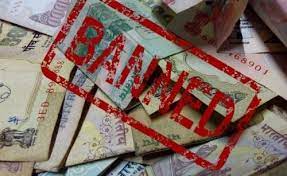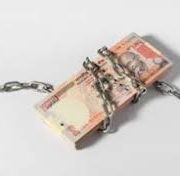Facts
The demonetization of 500 and 1000 rupee banknotes is a step taken by the Government of India on 8th November 2016 to fight corruption and black money issues in the country. Starting from midnight of 8 November 2016, all 500 and 1000 rupee notes ceased to be accepted as a form of legal tender in India.
Globally, this is not unusual. Central banks of several countries pump massive amounts of cash into the economy, mostly in very large denominations. In the US, $100 note accounts for 80% of the cash supply. In Japan, ¥10,000 note (about $100) accounts for 90% of total cash holdings. Across countries, most of this cash has been supporting underground black economies.
Why it is done?
The demonetization was done in an effort to stop the counterfeiting of the current banknotes alleged to be used for funding terrorism and for cracking down on black money in the country.
Impact of the move
Demonetization will increase bank’s deposits by a huge margin. This will also increase the lending activity because banks have a CRR (cash reserve ratio) to maintain and with more deposits they can do more lending. Credit (loans) will become easier and interest rates may come down. Thus, it will attract more foreign investments in near future.
Further, the move will probably push down property prices, including land prices as investors will not be able to utilize their cash in real estate and thereby forcing builders to sell at lower prices. Greater transparency in Indian real estate sector will assist in improving the country’s image and attract more foreign investments.
About the author:
Neeraj Bhagat is a member of the Institute of Chartered Accountants of India (ICAI) since 1997. He is also an Associate member of Association of International Accountants, United Kingdom. He is the founder of Neeraj Bhagat & Co., an Indian Chartered Accountancy firm serving various MNCs from across the globe with offices in New Delhi, Gurgaon and Mumbai. They are part of Allinial Global Accounting Association which is one of the World’s Top 10 in accounting associations.
For more information please log on to: http://www.neerajbhagat.com
SOURCE Neeraj Bhagat & Co.







